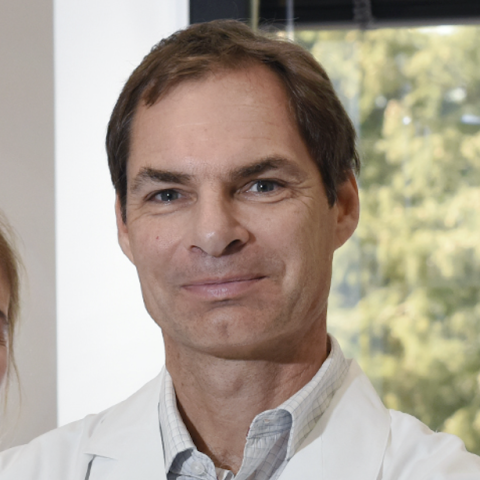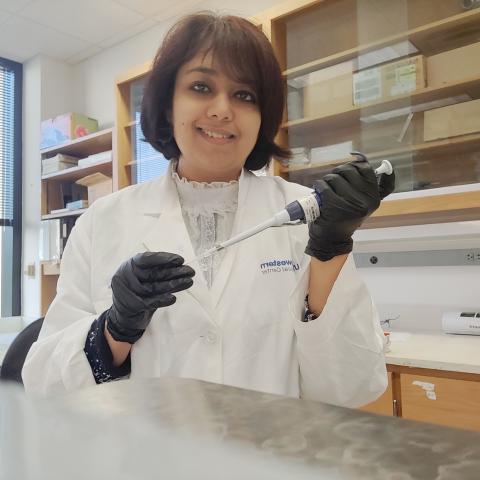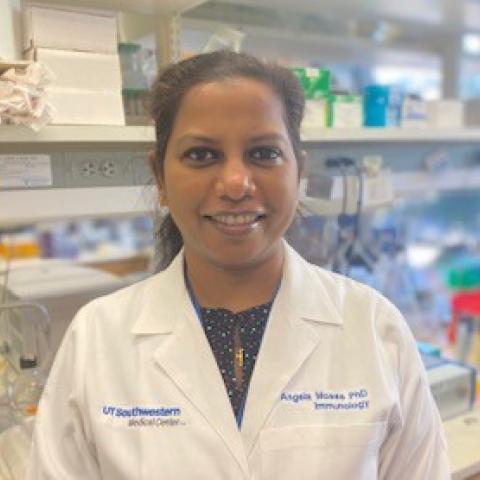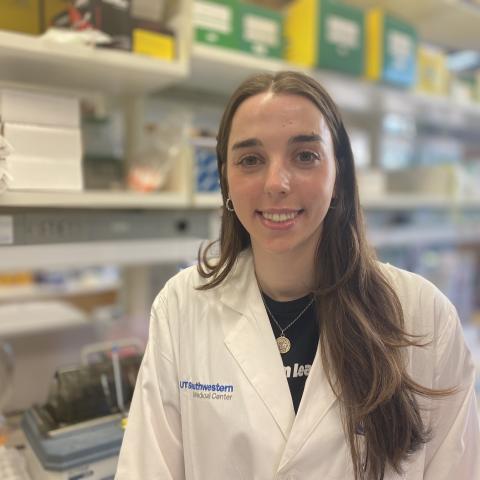
Nicolai S.C. van Oers
I am a Professor in the Departments of Immunology with cross-appointments in the Departments of Microbiology and Pediatrics. He studies the genetic causes of inborn errors of immunity, with a particular emphasis on the thymus. The thymus is the quintessential tissue needed for the development of T cells. A non-functional thymus leads to a severe combined immunodeficiency. He is a member of the Programs in Immunology and Molecular Microbiology, part of the Graduate School of Biomedical Sciences. He also teaches in the Medical School and to Medical Fellows in the Allergy and Immunology Division. I first developed a passion for research while an undergraduate student studying Biochemistry at the University of Manitoba in Canada. Intrigued by a now defunct concept of the idiotypic network theory in the immune system, he embarked on a Ph.D. program at McGill University. He focused on the immunoregulatory properties of alpha-fetoprotein. This led to an interest in the thymus, and Dr. van Oers did post-doctoral work at the University of British Columbia and the University of California, San Francisco.
Nicolai joined the faculty at UT Southwestern. In the past decade, Dr. van Oers has formed a research team focused on the formation and function of the thymus in health and disease. Advanced approaches include mouse models of various human disorders (in part via novel gene discovery platforms) and thymus organoid studies. These have revealed key requirements for mesenchymal, endothelial, and epithelial cells in thymus tissue formation and function. Projected outcome is improved production of T cells from the thymus. This is immensely beneficial for patients with inborn errors of immunity, particular autoimmune conditions, and those who have had their thymus removed due to cardiac surgeries or damaged by chemotherapies. Outside of work, Dr. van Oers enjoys biking (commutes everyday), walking, running, traveling, and languages. He likes helping others and volunteers as a Court Appointed Special Advocate for children.

Pratibha Bhalla
I started my scientific journey in India where I was born and raised. I obtained bachelor's and master’s degrees in microbiology (Calcutta University, India) and did Ph.D. in Chromatin Biology from CCMB India. In March 2019, I joined Dr. Nicolai van Oers's lab and started working on DiGeorge Syndrome (22q11.2 Deletion Syndrome). 22q11.2 DS is the most common (and second most common genetic disorder after Down syndrome) chromosomal microdeletion which affects 1 in 2100 live births. 22q11.2 DS It affects many organs with varying degrees of severity, one such affected organ is the Thymus which produces T cells. Most 22q11.2 DS patients (kids) suffer recurring infections due to compromised immunity. I am working on therapeutic strategies for correcting the congenital malformations of the thymus and exploring different approaches for thymus regeneration. I would be very content if our studies /efforts could make a difference in the lives of these immunocompromised kids. When I'm not in the lab, I like watching BLUEY with my 2 naughtiest girls. Me and my husband are National Park enthusiasts and enjoy hiking.

Angela Moses
My family and I moved to the United States right after I received my Ph.D. in Zoology from the University of Madras, India. I joined the van Oers lab in 2020 and have been studying the various impacts on thymus caused by mutations to a transcription factor called FOXN1. The thymus is the organ that produces T cells of the immune system. As a zoologist, my curiosity was sparked to know that FOXN1 mutations can affect T-cell development and can lead to a nude phenotype in humans and animals. It is mind-blowing to realize that the results of my research will help patients with different thymic cell deficiencies to select appropriate clinical interventions. Outside of work, I love spending time with my family traveling to new places, cooking and listening to worship music.

Katelyn Boetel
I graduated from the University of Illinois at Urbana-Champaign with High Distinction in Molecular and Cellular Biology. There, I studied multiple sclerosis and its effect on mood disorders. I am currently working towards a Ph.D. in Immunology here at UTSW. I am interested in the intersection of genetics and immunology in the context of human disease. Outside of lab, I enjoy hiking, cooking, and playing video games.